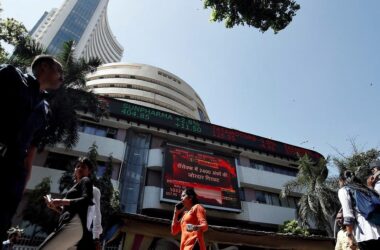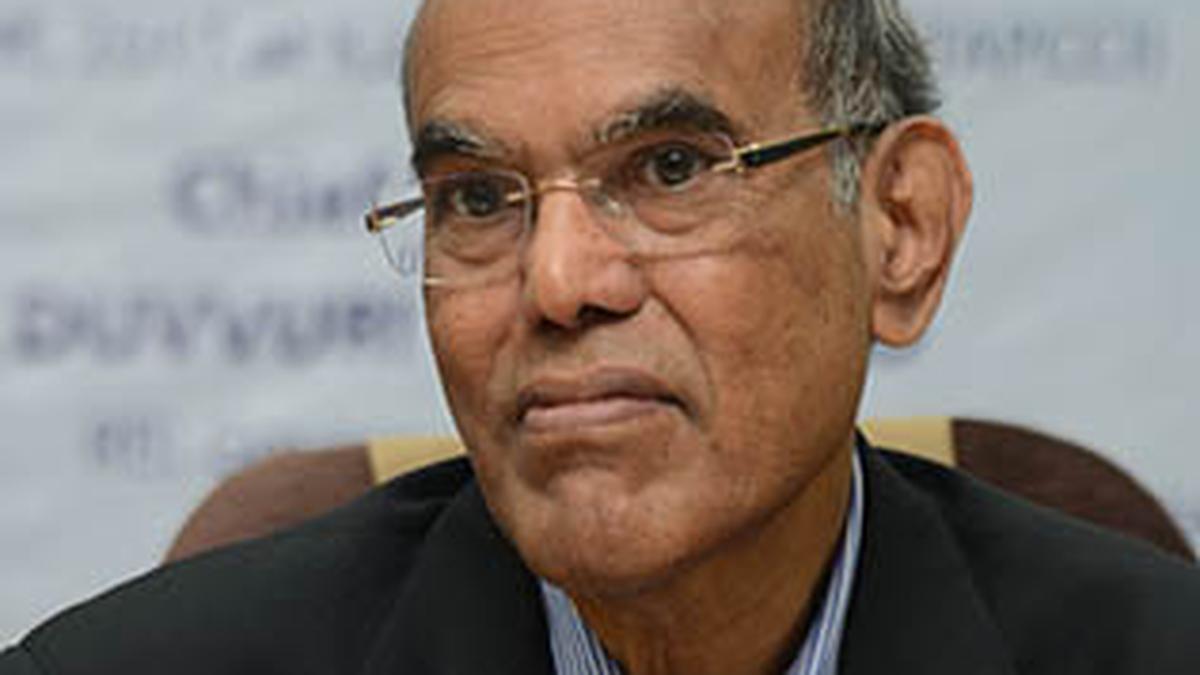India must strengthen the rule of regulation to compete with the developed world, shield the independence of its central financial institution, and maintain public officers, together with IAS officers, extra accountable, argues Duvvuri Subbarao, former RBI Governor and creator of the latest guide “Only a Mercenary?”, in an interview with The Hindu. Edited excerpts:
You say the IAS is not “the metal body of India” and blame corrupt IAS officers slightly than politicians who attempt to affect IAS officers for this. Why?
The commonest view at present is that the IAS is just not capable of carry out due to political strain. However the query is why ought to IAS officers succumb to the carrots being dangled by politicians? They do this as a result of after they see one individual, who’s of a weaker ethical cloth, succumbing to a politician and shifting up the profession ladder, they consider they will’t afford to get left behind. There are many causes attributed for the ethical and mental decline of the IAS, however I feel the principle purpose is a perverted system of incentives and penalties. There is no such thing as a system of rewarding good officers and penalizing unhealthy officers.
You element the pressures you confronted from ministers within the UPA authorities throughout your tenure because the RBI Governor in your guide. However isn’t such strain to be anticipated because the RBI governor is appointed by politicians? What’s the answer?
The federal government thinks of the RBI as a part of the general public sector system and treats it as part of itself. However the RBI performs greatest when it’s unbiased. The core mandate of the RBI is to take care of value stability and monetary stability. Delivering on this requires the central financial institution to take some choices maintaining in view the long-term sustainability of the financial system even when it inflicts short-term ache. However governments are involved in regards to the short-term ache and due to this fact tensions between the RBI and the federal government are inevitable. The query is how we handle these tensions amicably. There must be session between the RBI and the federal government, however ultimately the central financial institution has to behave independently.
You argue that one might really make the case that the Centre made a presumptive revenue slightly than a loss via the 2G auctions. How?
The CAG calculated a hypothetical presumptive loss by taking the distinction between the income that accrued beneath the worth at which the 2G spectrum was given and the income that would have accrued beneath 4 different hypothetical costs. The assumptions underlying these hypothetical costs are questionable. The CAG centered virtually fully on the upfront value with out making an allowance for the recurring income that might accrue to the federal government via spectrum prices. It’s fairly doable to argue that when spectrum is given away at a cheaper price than the market value, the penetration could be deeper. Subsequently the spectrum prices that might accrue to the federal government over time can be increased.
You say buyers, when deciding to speculate, care extra in regards to the rule of regulation than about free land or electrical energy supplied by state governments as sops. Why?
If you ask buyers what issues after they select between one state and one other, they are saying much more vital than sops is the rule of regulation. Dangerous rule of regulation could be fairly expensive to any enterprise enterprise. For instance, you probably have tax inspectors or compliance inspectors bothering companies, corruption, or if there may be politicization of labor unions; all this may add to the price. And what entrepreneurs are saying is that these prices matter to us greater than sops. We’re already seeing investments go to states that enhance the rule of regulation, not essentially to states that provide extra sops.
Many specialists argue that the Indian state is weak and that we have to increase India’s state capability to advertise progress. However you disagree with this evaluation. Why?
Usually, when folks speak about state capability, they speak when it comes to, for instance, the variety of staff or policemen or tax inspectors or lecturers per unit of inhabitants. After which they are saying in India state capability is low as a result of we don’t have sufficient employees. What I’m saying is that insufficient employees is just not the principle constraint. Our predominant constraint is incapacity or callousness to implement the rule of regulation. To offer an instance, is the issue of low achievements in schooling as a consequence of insufficient variety of lecturers or is it incompetent or ill-trained lecturers? So, for my part, wanting upon state capability when it comes to the variety of employees is incorrect. We should enhance our system of rewards and penalties for presidency employees and implement strict accountability.
You say the funds and different authorities coverage paperwork ought to be introduced in easy language. Why?
Public paperwork are written in a really technical, user-unfriendly language and most typical folks can’t perceive it. So they provide up on them, with the end result that the knowledge of crowds that ought to inform public coverage and democracy is just not occurring in our system. If the federal government tried to disseminate coverage points in a lighter language to the bigger public, the general public would be a part of the controversy and a few knowledge would come out of the bigger public discourse.
The Centre’s excessive fiscal deficit throughout UPA rule was blamed as the rationale behind excessive inflation. Is there a means the central financial institution can cease this by refusing to monetize the fiscal deficit?
The RBI doesn’t monetize authorities debt after the Fiscal Duty and Price range Administration Act got here into place. It doesn’t function within the major market, however does function within the secondary market and so it nonetheless can both assist the federal government or make it extra expensive for the federal government to borrow. There may be additionally the monetary repression that occurs at present with banks being anticipated to carry a minimal SLR (Statutory Liquidity Ratio), which makes it cheaper for the federal government to borrow. We should work in the direction of eliminating all of it collectively, aside from a minimal SLR for monetary stability functions, in order that the federal government borrows on the market price, not at a sponsored price. Additional, the RBI’s liquidity administration ought to be knowledgeable fully by market liquidity concerns and never by the federal government’s public debt issues.








